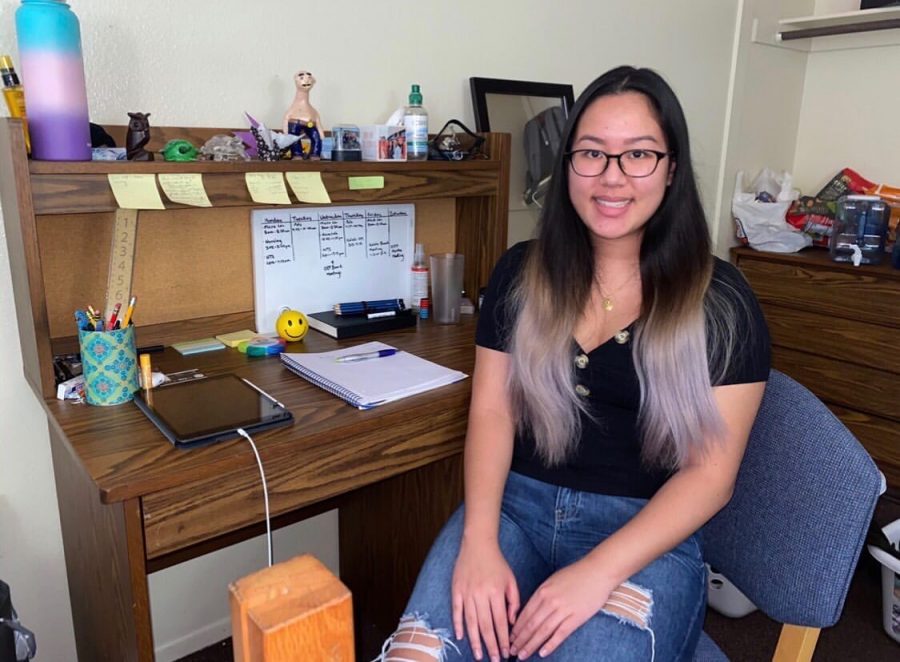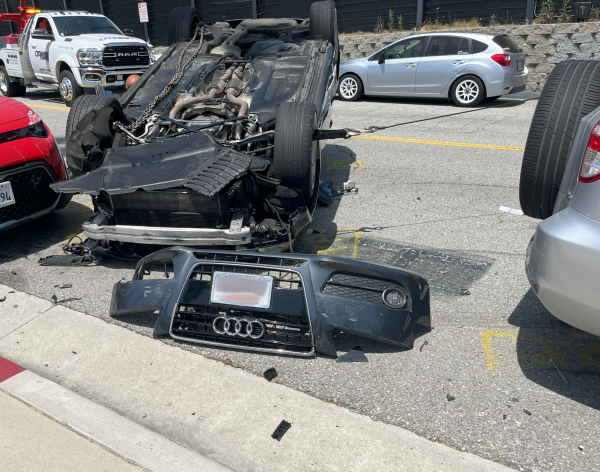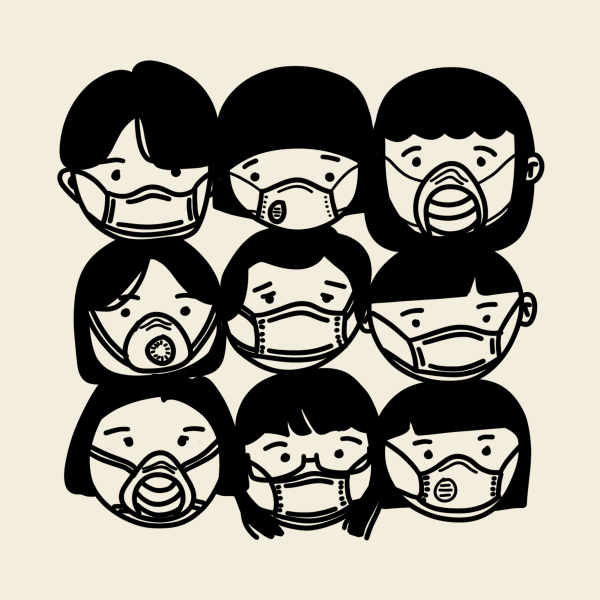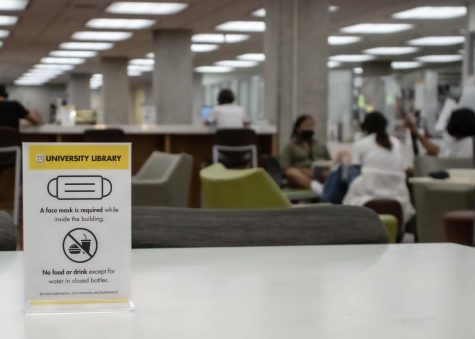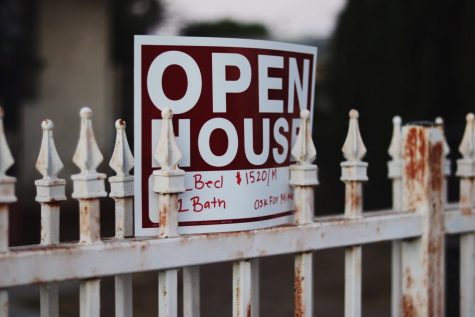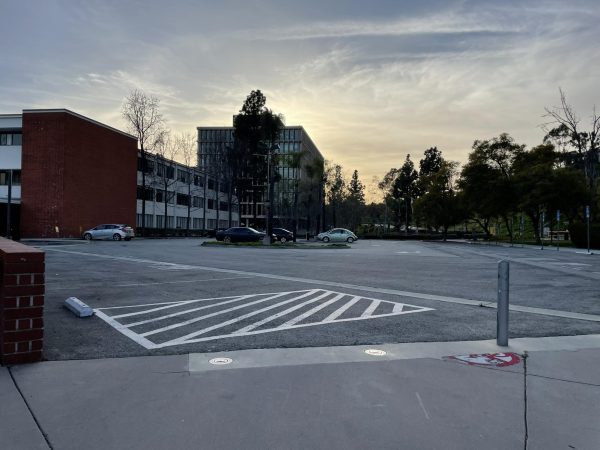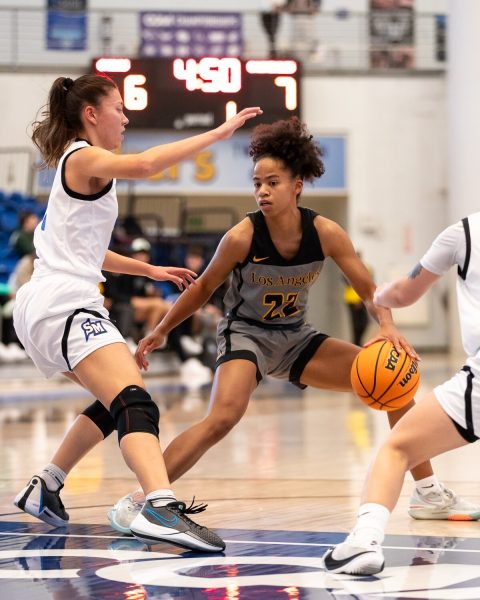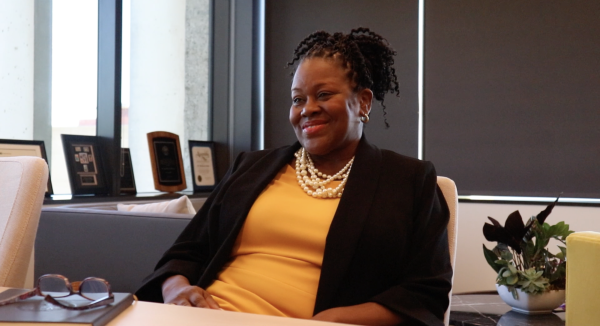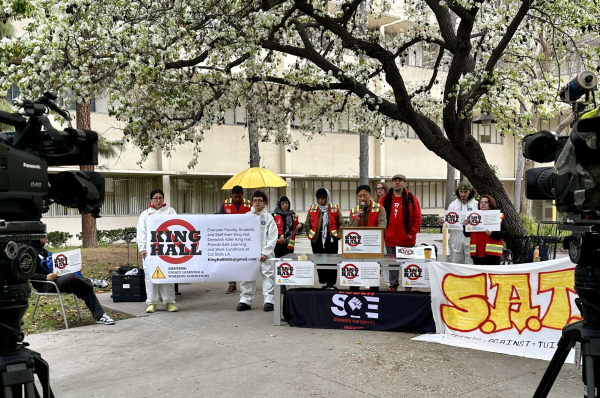Homeless student fights to stay at Cal State LA
Summer Szeto made a hard choice as the summer break came to a close. She’s already paid $2,500 out of pocket to stay at Cal State LA to avoid being homeless this semester.
Szeto, originally from Australia, moved to California to live with her mother and stepfather when she started high school. From there, she set her eyes on college to become a nurse. That’s when her mother, Grace van Uden, told her if she wanted to get a degree, she’d have to do it on her own.
“My mom was like, ‘I am not paying for your college,’” said Szeto. “My mom never went to college. She left home when she was 16 and she was doing it on her own. She doesn’t believe you have to go to college to become successful.”
Born in the Philippines and raised in New Zealand, van Uden and her sister were off to the workforce just shortly after high school. Their parents, too, refused to pay for their college to teach them independence, so they had to find work soon after.
At 17, van Uden said she stumbled upon a post-production company for advertising agencies. The job centered her in Australia, then Los Angeles, as she worked for 32 years making up to $150,000 a year. This reinforced the idea that she did not need college to be successful.
She already decided what kind of parent she wanted to be for her first child; van Uden believed in “tough love” like her own parents. While riding the bus, pregnant with Szeto, van Uden spotted the person next to her reading “The Prophet” by Khalil Gibran.
“She was on this particular chapter on parenting. I read this line peripherally that basically said, ‘Your children do not belong to you. They belong to the world.’ That sentence just hit home really hard,” said van Uden. “My job is to prepare this kid for the world.”
Van Uden said she wouldn’t be doing Szeto any favors by “braiding her hair or playing Barbie.” What was important for her was a roof over their heads and no holes in her daughter’s shoes.
Knowing her daughter had savings and grandparents to rely on, van Uden said she knew Szeto would be okay.
After receiving financial help from her grandparents who live in Australia and agreeing to pay them back, Szeto managed to afford her first year during the Fall 2019 semester at Cal State LA.
Szeto finished her first year with a 3.9 GPA with her two lowest grades being A-’s as a pre-nursing student at the college’s competitive program. She’s even put herself ahead a whole semester by taking more than the standard four classes each semester.
But, like many students, she couldn’t have predicted the turn her Spring Semester would take. As the pandemic took hold, Szeto housed herself in the campus dorms all summer.
Despite Cal State LA lowering the costs of housing from about $16,000 to $13,000 for the Fall, it still remained costly for Szeto to stay there. To live with family, however, would be near impossible as her mother started living in Texas with Szeto’s aunt at the end of last year.
“I would have to stay in a hotel first for 14 days just to quarantine in case I catch anything on the plane. I don’t want to get my aunt, who is a nurse, sick. Also, school already started so I don’t want to be stuck in a hotel,” Szeto said.
She added that her mother told her she’d also have to leave all her belongings behind. Szeto said she’d only be able to take a single backpack and suitcase.
Szeto couldn’t ask her grandparents again for help because they, too, have been struggling since the pandemic and the conversion rate of money from the Australian to the United States is not favorable. As of Sept. 2, $1.36 in Australia translates to $1 in the United States.
While doing her paperwork with the Financial Aid Office, Szeto filed as a “homeless independent.” The process called for her to speak with the Counseling and Psychological Services (CAPS) office in order for the department to verify her situation and provide her with a letter certifying she was homeless and a candidate for greater financial aid.
“My counselor wrote me a letter,” Szeto said. “It said, ‘Summer is experiencing this, this and this because of financial stress. She will be homeless. Her mom just quit her job and she’s leaving California, and Summer is here on her own.’”
Szeto said she started experiencing lack of sleep, high anxiety and stress as she had to keep her grades up, while her housing situation became unclear for the next academic year.
After her CAPS counselor referred her to a group session, Szeto wasn’t comfortable attending any longer because she wanted the privacy of talking to someone one-on-one.
She sent the letter to financial aid officials, which boosted her yearly aid from $2,000 to $13,700. That covered most of her costs with about $3,000 remaining.
Matthew Montiel, her boyfriend of three years and fellow Cal State LA student, offered to help using his own financial aid, but Szeto took care of the costs through a payment plan with the school. “I didn’t want her to take out the loans, so I offered to take out the loans on my account so they wouldn’t be over her head,” Montiel said.
Szeto went ahead and pulled from her own $2,000 in savings, staying afloat financially due to her summer job as a campus orientation leader.
The couple considered moving in together, but couldn’t find anything around their budget. A friend of Szeto’s from University of California, Davis offered a room to them for $800, but, ultimately, the three-hour drive and the amount of trips to move all her belongings would be too much.
Szeto said she kept most of her belongings at her mother’s home in Los Angeles, but when her mom left, she had to go pick it up. She mentioned having five large plastic drawers of just clothes. Plus, dishes and tea towels left to her by her mother.
Even as the couple lost their seasonal jobs, Szeto elected to stay on campus.
Szeto applied to a medical marijuana dispensary located within walking distance of the Cal State LA campus. Working near campus is a must for Szeto because she does not have a driver’s license or car. In high school, Szeto said she couldn’t finish her driving education because her mother had a newborn child, and many nights had to bring work home.
Given her financial situation, buying a car is not one of Szeto’s priorities.
“Buying a car is really expensive,” said Szeto. “I do have a couple of friends in the area. If I call them up, they’ll be like ‘Yeah, no problem.’ My boyfriend’s mom also has a car so if we really need to go somewhere, she’ll do the driving.”
Montiel said his mother even helped with Szeto’s groceries, as the three of them knew each other even before the pair got together in high school.
Between all that, Szeto is preparing and saving $100 to take the Test for Essential Academic Skills (TEAS) exam. Without it, she won’t be able to enter the nursing program. If she doesn’t pass, Szeto plans to apply to other schools and get into microbiology or go to Texas for nursing school.
While she doesn’t regret her time at Cal State LA because of the friends she’s made, the pandemic certainly would’ve led her to consider waiting.
“If I could do it over again, I probably would’ve gone to community college first just because the first couple years are [general education classes] and you could do that anywhere for a lot cheaper,” said Szeto.
Szeto’s family in McAllen, Texas, including recently her mother, all went to school in that area for nursing, making it a family full of nurses.
She added, “I probably would’ve gone to Texas straightaway and started college there.”
As of right now, Szeto is unsure if she’ll attend Spring Semester unless she receives more aid or housing costs go down. To be able to live in a dorm on campus, you must be a full-time student, which would be another potential $3,000 from Szeto after financial aid.
Montiel said his girlfriend is an “extremely strong and resilient” person. “She’s probably gone through many things I couldn’t see anybody else going through. We’re fighting to keep her here,” he added.
While she’s staying in the campus dorms, Szeto emphasized not only her respect, but also love for her mother. “You don’t need a college education to be able to get a good paying job and she’s proof of that,” said Szeto.
She added, “It was my decision to go to college and to figure out a way to do it myself. I know she’s always there if I need her, but, you know, at 18, you are an adult.”
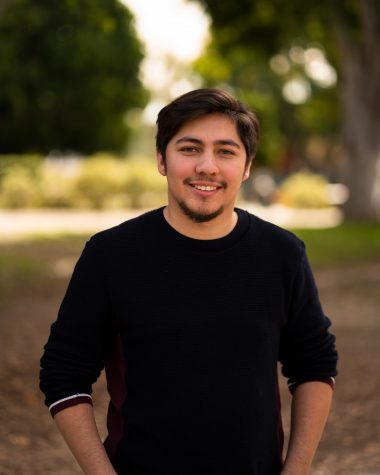
Starting at the University Times in Spring 2019, Joshua Letona has worked his way as an intern to three different editors positions and now, Editor-in-Chief....

